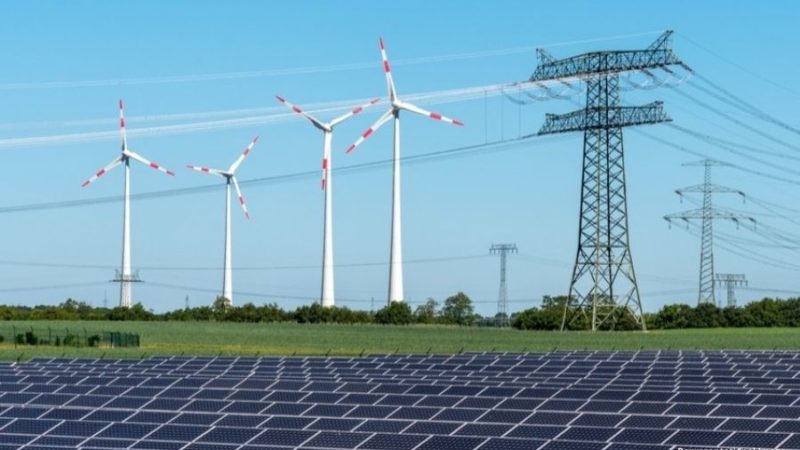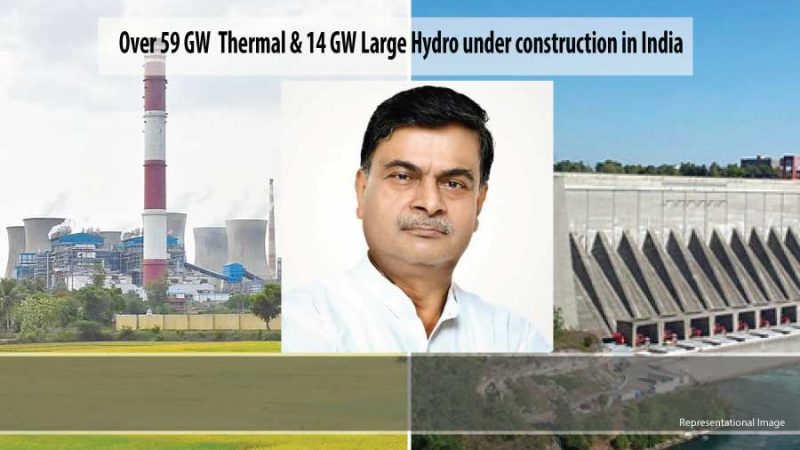Smart Grid – Pilot Project Progress

A report on progress being made towards implementation of smart grid pilot projects in the country – as on July 2018…
India’s main aim is to electrify all households; provide sufficient power for the agriculture sector and ensure that every person has 24×7 of power by 2019. Without a doubt, the country is all equipped to deploy new types of devices and ICT infrastructure, adopt new monitoring, control and energy management tools needed to quickly deploy smart grid concepts both at distribution and transmission level.
India’s vision for smart grids is to “transform the Indian electricity sector into a stable, adaptive sustainable and digital ecosystem with an active participation of stakeholders so that everyone can access safe and high quality energy.”
However, there are several challenges facing the implementation of the smart grid systems. High capital expenditures and limits to the market, as seen by the regulator, constitute the main challenges that political policymakers face.
The Journey
The Ministry of Power (MoP) took an early stage in 2010 by setting up India Smart Grid Forum, a collaborative non-profit consortium of public and private stakeholder with the overall aim of accelerating Smart Grid technologies growth in the Indian power sector in order to recognize the growing importance of smart grid technologies in the Indian power sector.
In addition, a India Smart Grid Task Force, an inter-ministerial group under MoP was also set up to provide policy direction to smart grid initiatives in the country.
In 2012, eleven smart grid and one smart city pilots were sanctioned, with nearly 50 per cent funding support from the MoP, to test various Smart Grid technologies. In addition to this there were several additional initiatives that various entities undertook – working in their domain for Smart Grid support and implementation in India such as CEA, BIS, CPRI, BEE, etc.
The next milestone came in March 2015, when Ministry of Power, Government of India, established National Smart Grid Mission (NSGM) to plan and monitor the implementation of policies and programs related to the smart grid activities in India. All smart grid operations in India have been brought together under its auspices.
Under the NSGM, four new projects were approved in 2016 to be implemented by state utilities with 30 per cent financial support from the central government. These projects are in the initial stages of development. The NSGM is also coordinating the development of smart grids under the Smart Cities Mission.
NSGM promotes deployment of Smart Grid technologies like Advanced Metering Infrastructure (AMI), substation renovation and modernization with deployment of Gas Insulated Substations (GIS) wherever economically feasible and Distributed Generation in the form of Rooftop Solar PVs, real-time monitoring and control of Distribution Transformers, creation of Electrical Vehicle (EV) charging Infrastructure for supporting proliferation of EVs, development of medium sized Micro-grids and provision of power quality improvement measures.
Pilot Projects Progress
To understand and test various Smart Grid technologies, MoP sanctioned pilot projects at a total cost of Rs 4.8 billion – that are to be implemented across states of Assam, Gujarat, Himachal Pradesh, Haryana, Karnataka, Punjab, Telangana, Tripura, Puducherry, Uttar Pradesh and West Bengal. All projects are being partially funded by the MoP, except the Uttar Haryana Bijli Vitaran Nigam Limited (UHBVNL) project, which was funded by the Japan-based New Energy and Industry Technology Development Organisation (NEDO).
Meanwhile, projects under the NSGM are under implementation in Sub-division 5 (Chandigarh), Congress Nagar (Maharashtra) and Amravati (Maharashtra) at a cumulative investment of Rs 2.6 billion, of which 30 per cent will come from the government. At present, bids are being awarded under most of the projects for various components such as AMI, SCADA, distributed generation, electric vehicles and cyber security.
Completed Pilots
As of July 2018, the completed projects include three pilot projects along with and one smart city pilot project, while the others are at various stages of implementation. On 25th of January 2018, UHBVNL inaugurated its smart grid technology demonstration project in Panipat covering 11,000 consumers. The execution of the project was undertaken by NEDO. In addition, the HPSEB’s project in the Kala Amb Industrial Area, covering 1,554 consumers, has also been completed.
Meanwhile, CESC’s project, covering over 21,824 consumers in Mysore, was completed in April 2018, however, due to some issues in the installed three phase CT meters, declaring Go-Live date is postponed. In addition, the smart city R&D platform at the Indian Institute of Technology (IIT) Kanpur has been successfully completed. The project includes a smart city prototype and a platform for testing of smart distribution systems.
Advanced Stage
While, projects under advanced stages of implementation includes Assam Power Distribution Company Limited’s (APDCL) project in Paltan Bazaar; Tripura State Electricity Corporation Limited (TSECL) project in Agartala; The WBSEDCL project in Siliguri, Darjeeling.
- The Assam Power Distribution Company Limited’s (APDCL) project in Paltan Bazaar covering 15,938 consumers. As of July 2018, the discom has installed over 13,691 smart meters – meanwhile the data centre setup has been complete and commissioned and the Installation of Control Centre hardware equipment is completed. As of July 2018 – there are 155 DCU communicating to control centre and 6190 meters communicating to Control Centre.
- In addition, substantial progress has been made with the project of Tripura State Electricity Corporation Limited (TSECL), which comprises of the largest consumer base of 42,676 customers . As of July 2018, a total of 30839 meters have been installed and are communicating with the servers. In addition to this around 180 DCUs have been installed and commissioned successfully. Rooftop Solar net metering & billing is being integrated with AMI system. Also, the control centre hardware and software have been installed and acceptance testing of applications have completed. Billing started for one RMU section with smart meter data. Data accuracy is verified and billing of 6,700 consumers done with smart meter data.
- The WBSEDCL project in Siliguri, Darjeeling, in the state of West Bengal covering 5275 consumers’ base is also in its advanced stages of implementation. As of July 2018, type test for smart meters have been completed with 4900 smart meters installed and 50 DCU installed at site. Also, material for control centre setup has been received and installed at the site while 700 smart meters has been communicating with control centre.
Other notable projects include – the Puducherry Electricity Department’s (PED) project, installation of smart meters is underway with 11136 single phase and 4151 three phase smart meters installed as of July 2018. For Uttar Gujarat Vitaran Company Limited’s (UGVCL) pilot project in Sabarmati, which is expected to cover 39,422 consumers, is also progressing – 16000 meters installed at Naroda site and 55 DCUs are installed at site. In addition, Data Centre equipment procurement along with Control Centre Hardware FAT has been completed • Trial is on for MDMS-HES Integration and as of July 2018.
Way forward
In India, the opportunities to create smart grids in both distribution and transmission levels are immense, as reliable electricity supply is one of the key infrastructure needs for overall development.
The learning’s from the implementation of the smart grid pilots and the government’s push to smart metering under various initiatives such as the Ujwal Discom Assurance Yojana and the Integrated Power Development
Scheme is expected to fast-track the power sector’s transition to smart grid and will surely play a key role in defining the trajectory of smart grid development in the power sector.








